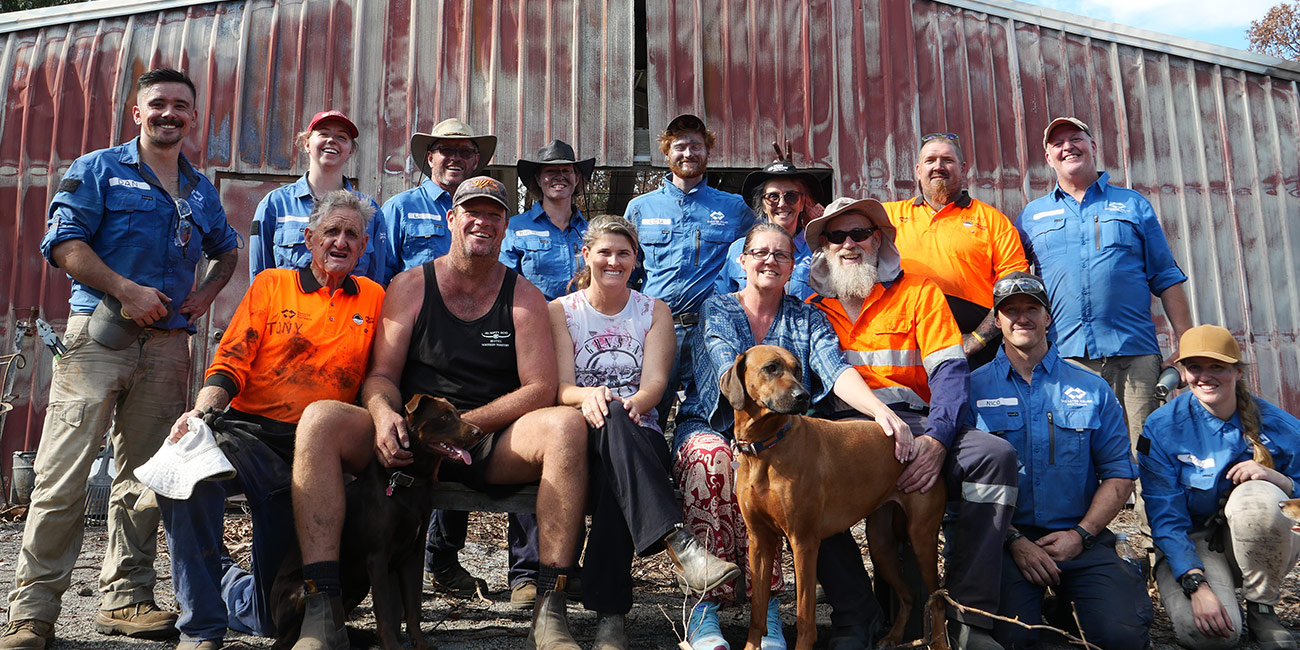Disaster Relief Australia – helping veterans find purpose and identity
A message from Disaster Relief Australia
There are few areas of civilian life that offer an experience that parallels the ADF. However, they do exist. Volunteering with Disaster Relief Australia (DRA) is one. Founded in 2016, DRA deploys veterans and emergency services specialists to assist communities in disaster resilience and recovery, both in Australia and overseas. According to DRA CEO, Geoff Evans, ‘deploying veterans into disaster zones encourages them to capitalise on the training and experience provided by the Australian Defence Force (ADF) and to use those attributes to continue to serve the nation’.
While volunteering for DRA recreates many of the mental-health protective factors of ADF service, such as a new team, mission and identity, it does not recreate the military. Volunteering with emergency services personnel and civilians helps veterans establish connections with people outside of the military and develop rapport with individuals and communities recovering from a disaster.
‘Connections to communities outside of the ADF are important, especially during transition, as are peer networks,’ says Geoff. ‘I still believe that the best person to help a veteran transition is another veteran, but they have to be a positive role model.
‘Veterans want to continue to serve. They just need the right opportunity, and when they find it, they rediscover the sense of self-worth, importance and purpose we all miss when we leave the ADF. Our volunteers are incredibly effective and very often take advantage of our training to move into skilled civilian employment. So volunteering with DRA should not necessarily be viewed as an end in itself but rather as a vehicle to engage, develop and inspire veterans to grow beyond their military service.

‘DRA’s virtue is that it achieves two mutually supporting objectives. Veterans who work with us are required to use their skills, experience and initiative to serve communities devastated by disasters. We often operate in remote and austere environments assisting people who are completely overwhelmed and unable to recover by themselves. The skills, experience and empathy veterans can bring to a problem like that is literally life changing – for everyone.’
Just how life changing is reflected in an analysis of more than 300 ‘reflections’ collected from DRA volunteers across 18 disaster relief operations over the last five years. Reflections are written or verbal accounts of what volunteers think about the work they’ve been doing on a given operation.
Military and Emergency Services Health Australia (MESHA) is a charitable organisation that conducts research into the mental health and wellbeing of serving and ex-serving ADF, first-responders, and their families. Recently, they conducted qualitative analysis of the reflections, and found that among the chief reasons people volunteer with DRA was the desire to find a new way to serve the community, and that their experience of DRA was that it gave them purpose and a sense of family or tribe.
These are quotes from some of those reflections:
‘On each and every occasion, without fail, I have been humbled to witness the synergistic healing that takes place between communities impacted by natural disasters who receive the help they so desperately need, and our veterans who have selflessly protected their country, filled with purpose and passion by putting their previously crafted skills towards a greater cause.’
‘Our community quickly realised that when they moved into our street there was no stepping back. These volunteer men and women, and the discipline and skills they demonstrate are a national asset, and deserve our support.’
Holly Bowen-Salter, a senior research officer at MESHA says, ‘there was enormous consistency among volunteers’ experiences, and a clear message that people who leave military service often find it difficult to operationalise their skills and that by volunteering with DRA they feel better about transitioning, and better connected to the community.’
Geoff says DRA is looking to bolster the nation’s disaster sector: ‘Despite extensive investment in this area, I believe there is more we can do to support communities prior to and after disasters. That is why DRA looks to mobilise one of Australia’s most underused resources, the Australian veteran, as a key player in disaster resilience, recovery and community volunteering.
‘The term “veteran” in Australia often conjures images of either old men with medals or broken young people with PTSD in need of charity and sympathy. DRA looks to actively challenge that narrative by continuing to demonstrate the exceptional skills and experience ADF service provides. When combined with the direct impact veterans have on disaster-affected communities, we aim to not only change the way veterans are viewed by the public but, in many cases, change the way veterans look at themselves.’
For more information, visit the DRA website.
